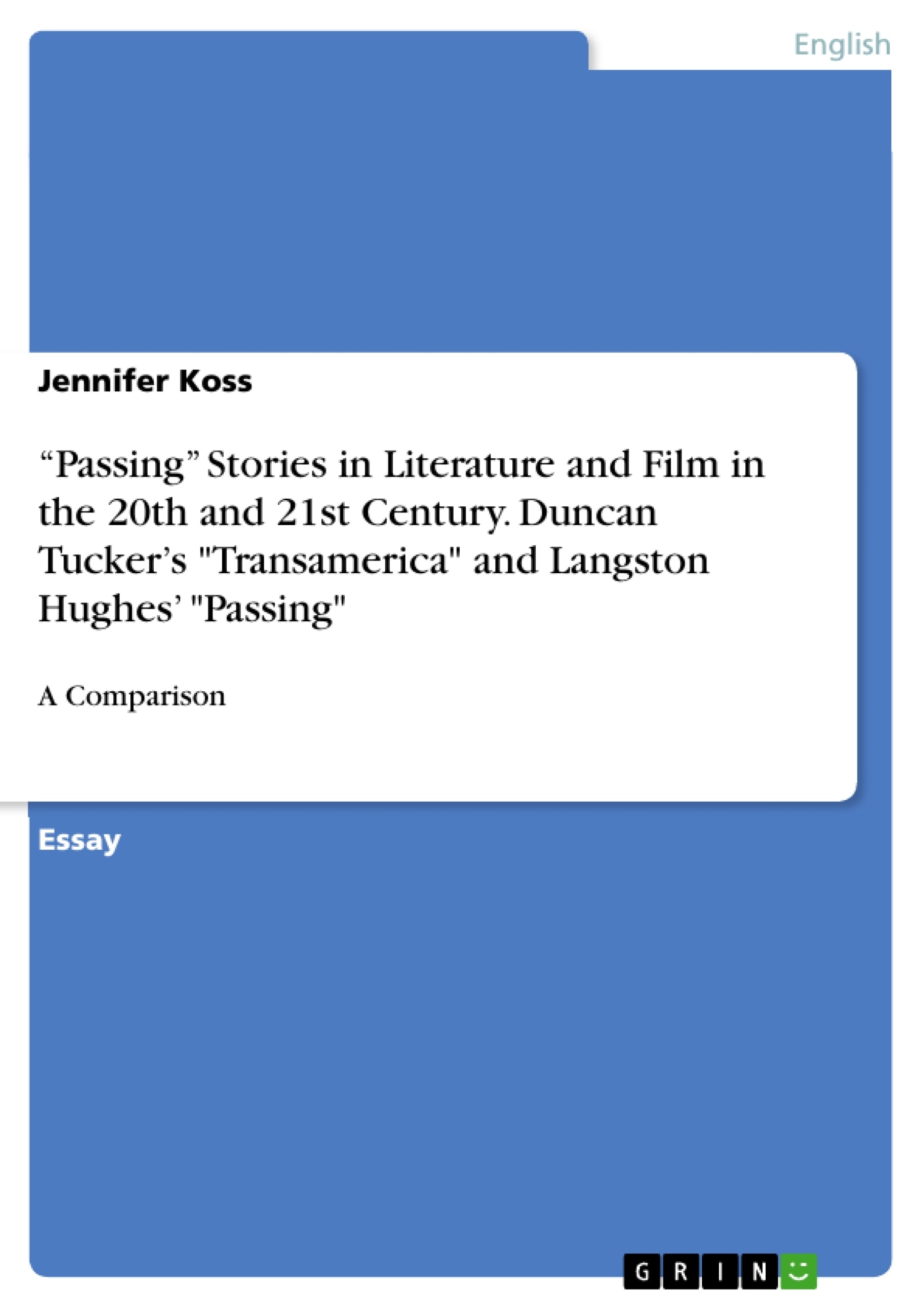“Passing” and “passing” stories have been a great topic in literature and in the movie scene since the beginning of the 20th century. That does not mean that “passing” has not been a topic in life before, but the literary interest in it began much later.
There are stories and movies about race “passing”, class “passing” and gender “passing”, but class passing does not seem to be too interesting, as there are millions of people pretending to be richer or better than they actually are; it is almost a normal thing in society today. It does not make you suffer hard when you’re not as rich or famous as you would like to be, although it makes you suffer in other ways when you are really poor. But this is not the main topic of class “passing” anyway, the suffering of the poor.
Race and gender “passing” are much more interesting, but not because the people suffer in those stories, but because it takes a great and strong character to race- or gender-“pass”. Race and gender “passing” are much harder to perform than class “passing”.
Inhaltsverzeichnis (Table of Contents)
- Introduction to the topic
- Why did I choose it?
- Duncan Tucker's “Transamerica”
- Langston Hughes” “Passing”
- How "passing" is depicted in the movie
- How "passing" is depicted in the text
- Comparison of “Transamerica” and “Passing”
- How has the people's reaction changed from the 20th to the 21st century?
Zielsetzung und Themenschwerpunkte (Objectives and Key Themes)
This essay aims to compare and contrast the themes of "passing" in Duncan Tucker's 2005 film "Transamerica" and Langston Hughes' 1930s short story "Passing." By analyzing the narratives of these two works, the essay will explore the challenges, motivations, and societal perceptions of both gender and race "passing" in the 20th and 21st centuries.- The complexities of "passing" as a social and personal experience
- The challenges and motivations behind "passing" for both gender and race
- The portrayal of societal perceptions and reactions towards "passing" in the 20th and 21st centuries
- The emotional impact of "passing" on individuals and their relationships
- The historical and cultural contexts of "passing" stories
Zusammenfassung der Kapitel (Chapter Summaries)
The essay begins by introducing the concept of "passing" as a literary and cinematic theme, highlighting the distinct experiences of race and gender "passing." It then delves into the specifics of each text, starting with Duncan Tucker's "Transamerica," a film about a transgender woman named Bree who discovers she has a 17-year-old son. The chapter explores Bree's journey towards her final surgery while grappling with the complexities of her past and her relationship with her son. The following chapter focuses on Langston Hughes' "Passing," a short story told in the form of a letter from a black man named Jack to his mother. The chapter explores Jack's decision to "pass" as white and the social and emotional consequences of his choice. It examines how Jack navigates his new identity and the challenges of maintaining distance from his family and past.Schlüsselwörter (Keywords)
The essay revolves around the central themes of "passing" and "identity," with a particular focus on the experiences of gender and race "passing." Key terms include gender dysphoria, societal perceptions, social constructs, family relationships, identity formation, and the historical context of racial and gender discrimination. The essay also examines the role of internal narratives and personal experiences in shaping the understanding of "passing" and its impact on individuals.- Quote paper
- Jennifer Koss (Author), 2007, “Passing” Stories in Literature and Film in the 20th and 21st Century. Duncan Tucker’s "Transamerica" and Langston Hughes’ "Passing", Munich, GRIN Verlag, https://www.grin.com/document/148933




